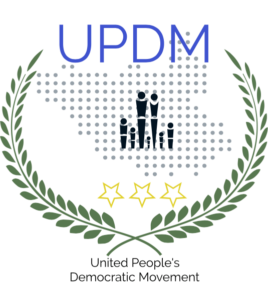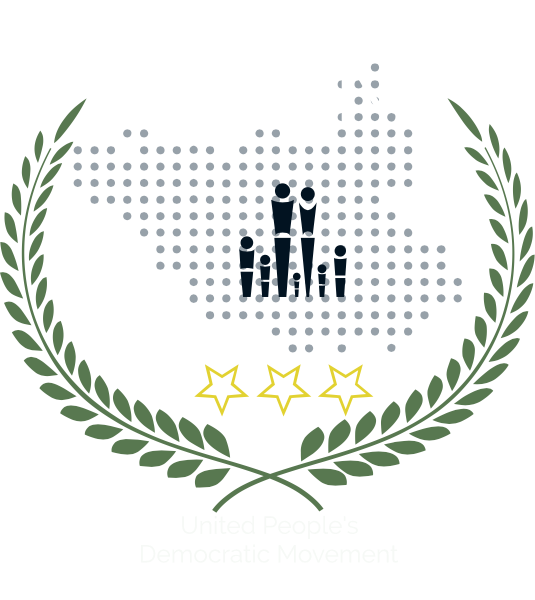
Date: 5 December 2016
- The heavy reliance on the Regional (neighbouring) countries taking the lead in the IGAD-led negotiations did not help the cause as it is no secret that the respective governments do not only have vested interests in South Sudan but have benefited from the current poor governance. Hence asking them to oversee reforms was basically setting-up for failure.
- Some members of the IGAD mediation team are known to have personal economic interests and business relations with senior South Sudanese government officials up until the time of the negotiations. Some were openly biased, thereby frustrating any expectations of an impartially brokered and workable solution. These conflicts of interests are partly responsible that IGAD pursued the single objective of “power sharing arrangements” and hoping against all odds it will deliver peace. There must be room for reflection, taking stock and flexibility to change the course of action.
- The negotiation approach focused on brokering the inter-party SPLM issues, that spilled out into an ethnic conflict between the Dinka (backing SPLM-IG) and Nuer (backing SPLM-IO), at the expense of the real issues of poor governance, kleptocracy and dictatorship under the SPLM led regime. As such the solutions focused on the party factions (SPLM-IG, SPLM-IO and FDs) and to some extent on personalities within the two warring factions, even though they largely do not represent the people of South Sudan, most of whom are not affiliated to these parties. In so doing ARCISS lacked ownership by the people, and without support it failed before it even started.
- Entrusting the implementation of the entire process of ARCISS under the president as opposed to creating a levelled partnership field, was another key mistake of the brokers of ARCISS, as by putting all powers in the hand of the spoiler, meant July 2016 was more expected than not.
- Once ARCISS was signed, the brokers allowed the parties to bypass key clauses of the agreement, such as cantonment of the militaries, and instead insisted that the SPLM-IO leader return to South Sudan to take his position without first ensuring a levelled platform, knowing very well the government was not interested in implementing ARCISS because it feeds on the system as it is. So the incident of July 2016 was bound to happen.
- Another key consequence of entrusting the neighbouring IGAD countries to take the lead in the peace process, despite their political interests that contradict ARCISS, resulted in the failures of UNMISS to respond appropriately to the incident at Trident Hotel in Juba on the 11th of July 2016, the chain of the events thereafter that led to Kenya’s responsible response, including the deportation of James Gadet.
- Instituting JMEC to oversee the implementation of the agreements, knowing they do not have carrots and sticks to steer the process was another mistake of the international community. However the mistake goes back to putting IGAD in the lead knowing that they were not interested in changing the status quo in South Sudan, for their own political benefits.
- It took the International community too long to deliver on important aspects of ARCISS under their jurisdiction, namely the war crime tribunal. So by allowing the President to ignore military cantonment at the start, by pass approving the Transitional Nation Legislative Assembly and signing ARCISS into law, and not delivering on the war crime tribunal, meant the President had a free hand to pay lip service, pick and choose bits to implement, play delaying tactics to buy time, and constantly creating destructions that were not only unconstitutional but also contradicted the ARCISS agreement itself. The lack of meaningful oversight on the implementation of ARCISS gave the President overconfidence to change signatories to the agreement as he wished, putting their lives in danger. To the people’s amazement, even this was accepted by the brokers.
- The sequence of events mentioned above unintentionally played into the hands of the Dinka elites, empowering them over all the other ethnic groups in the country and giving them the free will to use State resources to oppress and intimidate other ethnic groups at will. Hence the massacres of innocent unarmed civilians ensued and the conflict spilt over into Bahr El Ghazal and Equatoria regions. As a result numerous armed groups sprang up across the country and as per UN Adviser Adama Dieng’s recent report to the UNSC, a genocide is in the making.
- Going forward it is vital that the new transition is NOT entrusted to former members to the three arms of government as of 2005, as all of them have personal/political differences with each other that play out in one form or another within the transitional arrangement to the detriment of stabilising the country, as seen in the transitional arrangement that just collapsed. After all, the majority of South Sudanese people are not affiliated to the existing political parties for that matter and are therefore not represented by these parties and their factions. Instead, when these personal and political differences among the political elites play out, it is the unaffiliated majority of South Sudanese that pays the highest price.
- It is important to note that whatever alternative solution is eventually agreed it must be inclusive, people centred and must include implementation of the entire (reviewed) reforms spelt in the ARCISS, within a structure that takes into account the lessons learnt listed above. UPDM is in the process of drafting an alternative solution and will share that shortly.
UPDM, 5 December 2016
